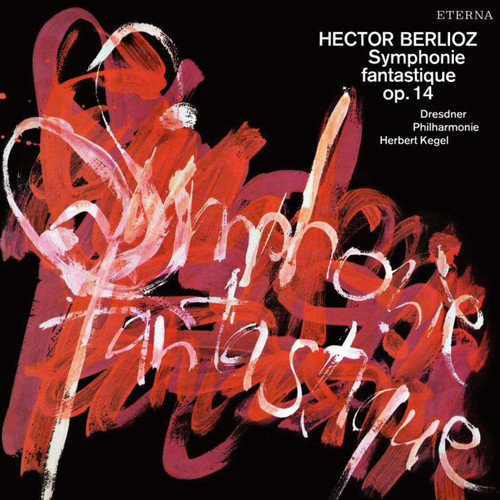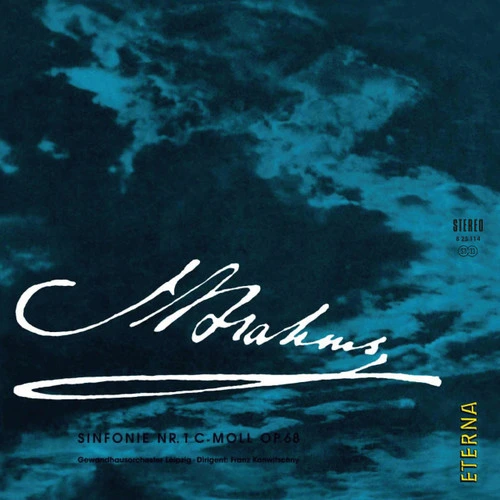Master Quality Reel To Reel Tape!
This item not eligible for any further discount offers!
Each Reel-To-Reel Tape is made to order and is typically here within 2-4 weeks!
The conductor Herbert Kegel had an instinctive flair for unravelling sound to fill space and thus made full use of the exceptional acoustics of the Lukaskirche in Dresden, which became his regular recording studio (for the Eterna label). The challenge there was to achieve a finely balanced fusion of sound and complete audibility in the tutti sections - after all, Herbert Kegel never aspired to the opulence associated with Karajan. One might say that the composition has been put under an acoustic magnifying glass to bring out details that are little appreciated (e.g. secondary parts that are often overlooked). Although Kegel's finely nuanced style aims to develop contrasts of both sound and dynamics, his agogics never appear arbitrary but always in line with the formal progression of the music. It is clear from the track list that this re-released recording is one of the slowest in his discography, not that this is at all noticeable at any stage of the listening experience: one might say that the composition has been put under an acoustic magnifying glass to bring out details that are little appreciated (e.g. secondary parts that are often overlooked).
DOES HORCH HOUSE DO ANY KIND OF REMASTERING DURING THE COPYING PROCESS?
Absolutely not! Why mess with the best? The whole point of what they do lies in capturing the magic of the original analogue master tape in its purest, most faithful form possible.
'Remastering' can be compared to using computer software to edit an original photograph. The benefits are that you can remove unwanted marks or noise, clean things up, remove distortion and boost clarity. The downside is that in doing so, you often lose the natural essence of the original and the result can seem rather synthetic, lacking in real life character.
The unfortunate fact is that tapes, like photographs, do tend to age over time, and most analogue masters are now between 30-80+ years old.
So Horch House undertake a painstaking 'soft refurbishing' process, which is key to recapturing the original quality of a master tape.
CAPTURING THE MAGIC OF MASTER TAPE
How exactly does Horch House translate an original analogue master tape into faithful copies on reel-to-reel tape and vinyl records?
They use a process that's been meticulously researched and developed by their expert team of sound engineers, with input from some of the world's leading specialists.
The first step is to carefully assess the sound quality of the original master tape, which their experts do in great detail. The unfortunate fact is that tapes do tend to age over time, and most analogue masters are now between 30-80+ years old. What they're looking to do, therefore, as an integral part of their copying process, is to restore the sound quality back to its original level. They want you to hear exactly what the first sound engineers heard (and indeed the musicians themselves), on the day that the original recording was made. This is in stark contrast to any kind of 'remastering', which they most definitely do not do! They're not looking to 'improve' the recording in any way, but rather to return it as closely as possible to its full original beauty.
They call this their 'soft refurbishing' process.
HOW CLOSE ARE HORCH HOUSE COPIES TO THE ORIGINAL MASTER TAPES?
Horch House believe that they're as close as it's possible to get - not simply to the master tape in its current condition, but to that master tape's original condition. Thanks to their detailed 'soft refurbishing' process, their master tape copies could, in a sense, now be considered as better than the current originals because they've been lovingly restored to deliver the same sound quality that the originals had on the day they were first recorded.
WHAT ABOUT COPYRIGHT? ARE MASTER TAPE COPIES LEGAL?
All Horch House master tape copies are fully authorized, licensed and approved by the relevant record label/music publisher.
** It is standard practice in all recording studios to keep the tape "tail out". This reduces "pre-echo" and it means that the tape should be placed on the right hand side of the recorder, re-wound and then played.
Features
- Studio Master Copy
- 2-Reel Tape
- Tape Material: RTM SM900
- Recording Speed: 15IPS - 38cm/sec
- Rec. Level (mag flux): 510 nWb/m
- Equalisation: CCIR
- Width & Tracks: 1/4" - 2 Track
- Reels: Metal - 10.5" - 26,5 cm
- Production on Studer machines refurbished to factory specification
- Handmade
- Recorded in the private studio of Hans Georg Brunner-Schwer
- Recording director & engineer: Hans Georg Brunner-Schwer
- Fully authorized, licensed & approved by the record label/music publisher
- Horch House Deluxe Packaging
Musicians
| Dresdner Philharmonie | |
|---|---|
| Herbert Kegel | conductor |
Selections
Hector Berlioz (1803-1869)
Symphonie Fantastique, Op.14
- Reveries - Passions. Largo - Allegro agitato e appassionato assai
- Un bal. Valse. Allegro non troppo
- Scene aux champs. Adagio
- Marche au supplice. Allegretto non troppo
- Songes d'une nuit du Sabbat. Larghetto - Allegro




 Turntable Accessories
Turntable Accessories Headphone Accessories
Headphone Accessories Cable Accessories
Cable Accessories Vinyl Accessories
Vinyl Accessories Compact Disc Accessories
Compact Disc Accessories







